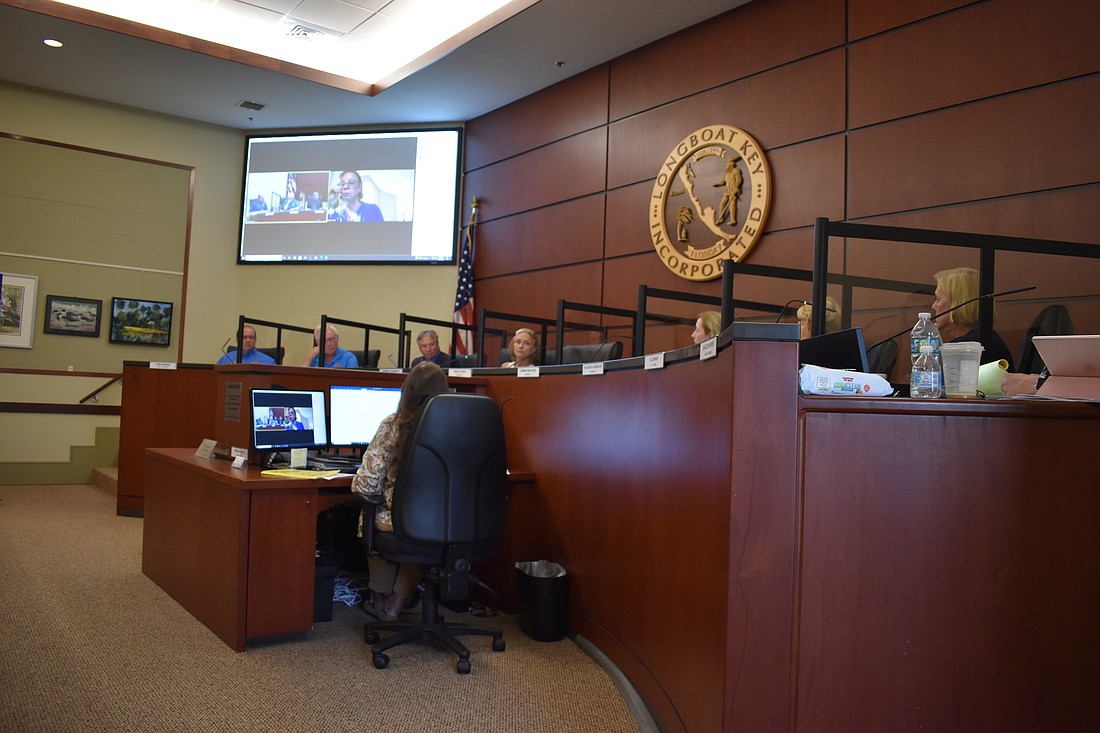- November 16, 2024
-
-
Loading

Loading

Members of the town's Planning and Zoning Board will have the opportunity to participate in meetings virtually under a set of six specific circumstances after Town Commissioners this month adopted a resolution similar, but not identical, to one that governs their own virtual participation.
Town commissioners in 2021 updated language allowing the seven elected officials to use interactive media such as Zoom to take part in meetings and workshops when "extenuating circumstances'' keep them from coming to Town Hall in person.
Since then, members of the Planning and Zoning Board began seeking similar allowances, which led to discussion this fall to make such an arrangement possible.
The biggest differences between the Town Commission's allowances and the allowances approved 6-0 for the Planning and Zoning Commission lies in the conditions in which members, who are appointed by Town Commissioners, can appear electronically.
They are:
Town Commissioners also are able to decide on a case-by-case basis whether or not members must attend in person. The same case-by-case allowance does not exist for Planning and Zoning members.
Virtual meetings and work have become the new normal in many areas across the globe since the onset of the pandemic. However, governments have been shifting back to in-person attendance to foster robust discussion, respect for attendees and the requirement for a physical quorum.
“I have really struggled with this,” Commissioner BJ Bishop said. “One of the things we have learned through COVID is the quality of our meetings was far less successful in a Zoom environment and especially with planning and zoning issues when you are dealing with blueprints, dealing with questions from staff.”
She expressed that her concerns center on the fear that making any changes to town policies that largely lean toward in-person attendance could be a mistake. Other commissioners joined Bishop with similar sentiments. During the height of the COVID-19 pandemic, multiple commissioners often took part in virtual meetings with frequent instances of muted voices and difficulty in gaining attention to speak.
Aside from the in-person concerns, the town also had financial concerns. IT Department support of additional virtual participation is estimated to cost the town an additional $9,000 a year for outside resources, based on 48 hours of work to support meetings.
“I don’t think it would be a big burden on the town to accommodate this,” Commissioner Penny Gold said. “It makes sense to me. I think the Planning and Zoning Board should have access to this for personal emergencies.”
Gary Coffin, a member of the board, was present at the Nov. 7 meeting and answered questions from commissioners regarding how often the program may need to be utilized.
“To do it over Zoom is not nearly as effective, but I would say three times over the course of all our meetings (someone had to miss), including comprehensive plan meetings,'' he said. "It would still be nice to have that as an option, if needed.”
During the original conversation about virtual attendance at the commission’s Oct. 17 meeting, commissioners were also given the option to discuss the possibility of further altering their own virtual attendance policy.
Ultimately, they decided to leave it as is, citing advance knowledge of scheduled meetings that require attendance. Gold was the only member to speak in favor of changing the policy for commissioners. She raised the idea of allowing for any kind of travel to be considered a sufficient excuse in favor of gaining each member’s perspective on an issue.
Individuals on trial for a crime are not allotted the right to attend virtually as those testifying for or against their case expect the courtesy of addressing the defendant directly. Much is the same in the way governing bodies are present before attendees as they come to meetings to speak and are expecting to be able to address commissioners directly.
“When there is someone standing at that podium, who believes they are speaking at a quasi-judicial or a legislative public hearing discussion, it is no different than being before a jury and a judge,” Bishop said. “They expect, and we should expect that we are eye-to-eye and face-to-face.”